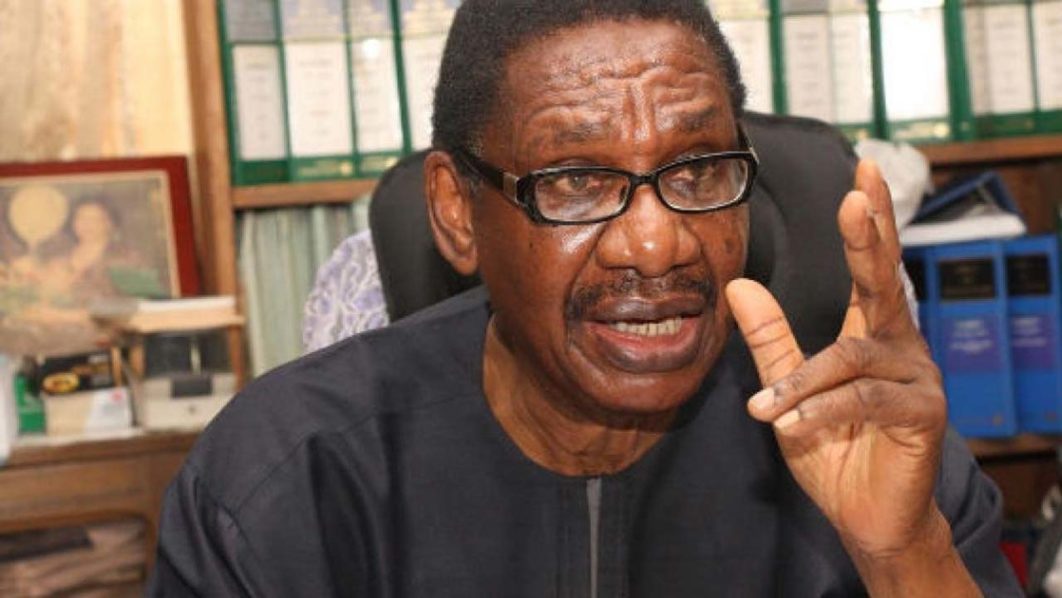The Chairman of the Presidential Advisory Committee Against Corruption (PACAC), Professor Itse Sagay (SAN), has enjoined African leaders to join forces against corruption, saying that Africa is worst hit by graft and that it must be changed.
Executive Secretary, PACAC, Prof. Sadiq Isah Radda, representing the Chairman, PACAC, said this while speaking at the 5th African Union Day of Anti-Corruption on the theme “Regional Economic Communities: Critical Actors in the Implementation of the African Union Convention on Preventing and Combatting Corruption,” organised by PACAC and other collaborating partners such as Independent Corrupt Practices and other Related Offences Commission (ICPC), Code of Conduct Bureau (CCB), the Economic and Financial Crimes Commission (EFCC) and the Nigerian Financial Intelligence Unit (NFIU).
Speaking on some of the social problems caused by corruption in Africa, the PACAC chairman called for collaboration among African leaders to achieve better results in the fight against corruption.
Prof. Sagay noted that Africa was suffering due to Illicit Financial Flows (IFF), and therefore, urged African states to cooperate and speak with one voice to ensure that IFFs and looted funds stashed in other jurisdictions were recovered and repatriated.
“Instability in Africa would lead to instability in the World,” he stated while stressing on the need to combat corruption in Africa.
Chairman of the ICPC, Prof. Bolaji Owasanoye (SAN), said that the theme to mark the AU Day of Anti-Corruption was apt as it was time for the practical and sustainable implementation of the AU resolutions against corruption.
Prof. Owasanoye stressed the need for synergy amongst agencies in experience and information sharing to advance the scope of the anti-corruption fight.
Speaking on some of the achievements of the Commission, Prof. Owasanoye explained how ICPC had collaborated with the media, Civil Society Organisations, MDAs, Anti-Corruption Agencies, traditional and religious bodies as well as the youths to curb corruption.
Chairman, Senate Committee on Anti-Corruption, Senator Suleiman Abdu Kwari, advised that a futuristic approach be adopted by anti-corruption agencies in tackling corruption related issues in Africa.
Sen. Abdu Kwari, while highlighting the challenges of financial crimes in the country, stressed that money laundering was a crime that could not be avoided especially with the amorphous nature it is assuming.
He advised anti-corruption agencies to put modern technological measures in place to be a step ahead in the anti-corruption fight.
He urged anti-corruption agencies to collaborate not just on the domestic level but internationally to make the anti-graft fight more effective.
Chairman of the EFCC, Abdulrasheed Bawa, said corruption was a serious threat to the development, prosperity, stability and security of the African continent.
Bawa, who was represented by the Director of Intelligence, Abubakar Saad, also said that Regional Economic Communities (RECs) should encourage trade and cooperation to prevent corruption as well as foster joint training and information sharing among anti-corruption agencies in Africa.
In his remarks, Director and Chief Executive Officer NFIU, Modibbo Haman Tukur stated that for sustainable development to be achieved in Africa, there was need for the AU Agenda 2063 to be adopted and implemented at both regional and national levels.
He therefore advised that funds, which had been earmarked for social and developmental purposes, in line with the Agenda 2063 goals and priorities, be used judiciously to reflect transparency, accountability and integrity.
Also delivering his remarks at the event, the Chairman of the CCB, Prof. Mohammed Isah, represented by Fatima Kere-Ahmed, said corruption was one of the obstacles to sustainable development, security and welfare in Africa, and therefore stressed the need for synergy amongst anti-corruption agencies.
In his remarks, Country Representative United Nations Office of Drugs and Crime (UNODC), Oliver Stolpe, said it was important for Nigeria to share initiatives with other African countries, especially to ensure that citizens were protected from the effects of corruption.

